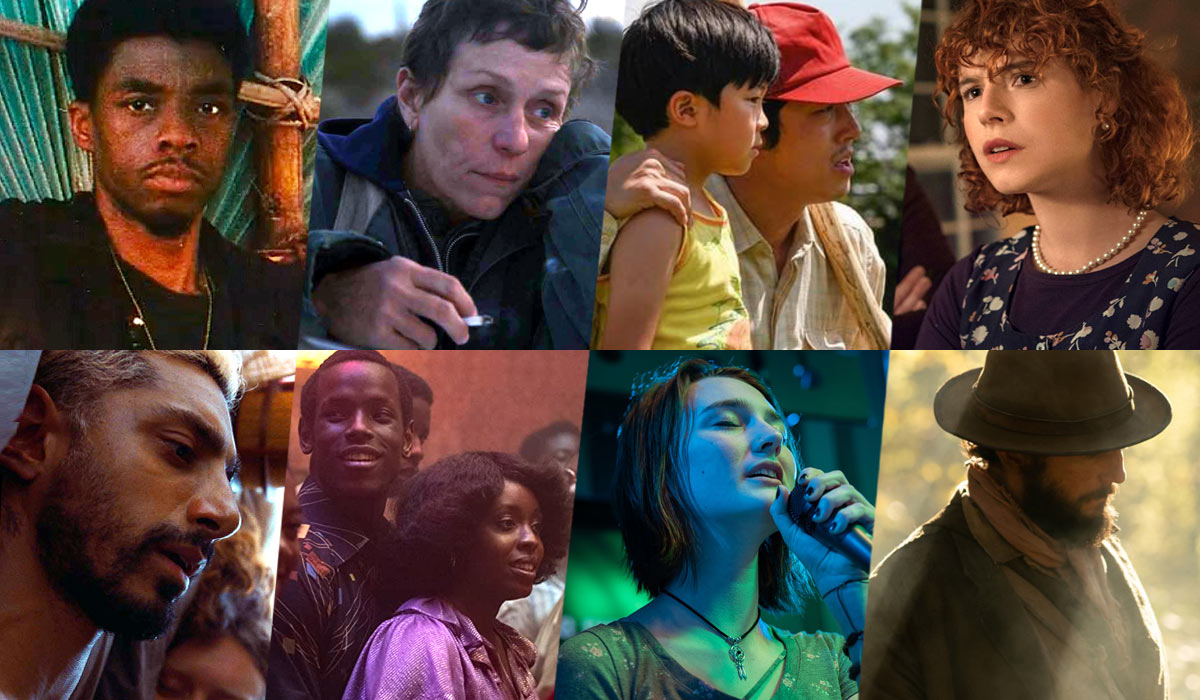15. “Martin Eden” (Pietro Marcello)
On one level, Pietro Marcello’s sweltering adaptation of the Jack London novel plays like a classic tragedy. The story of a handsome, bright-eyed sailor who falls for the daughter of a nobleman, and resolves to become a great writer, “Martin Eden” traces with the heaviest of hearts our protagonist’s rise and fall, his degradation, and the painful dissolution of his first love. But Marcello, a documentarian and film essayist before this, his narrative debut, complicates the conventional portrait of the artist through temporal tinkerings in the vein of recent European fare like Christian Petzold’s “Transit” and Alice Rohrwacher’s “Happy as Lazarro,” as well as archival footage that situates Martin’s journey in a communal history of Italy’s working class. Simmering with longing and regret by the final act, “Martin Eden” is a poignant cautionary tale for our times that pits individual aspiration against a never-ending class struggle. And in Luca Marinelli’s arresting lead performance, it gave us one of the most memorable faces and impressive breakthroughs in recent memory. – Beatrice Loayza
14. “The Invisible Man” (Leigh Whannell)
Following Universal‘s failed cinematic universe attempt focusing on modern updates of their classic monster lineup, director Leigh Whannell once again joined forces with Blumhouse mastermind Jason Blum for “The Invisible Man,” sharing little more than a title and some inspiration from H. G. Wells’ novel – in the best possible way. Though Whannell delivers in terms of atmospheric tension and well-earned jumpscares, the film belongs to Elisabeth Moss in the central role of a domestic abuse survivor who believes her former significant other might now exist in a state of stalker-ish, literal invisibility. Moss’ ability to interact with her transparent co-star results in some of the most gripping scenes brought to the genre, while Whannell expertly orchestrates the pacing to keep audiences engrossed from start to thrilling finish. There are no apparent sequel plans, and it’s truly a film that doesn’t need one: an experience one need only see to believe. – Brian Farvour
13. “The Nest” (Sean Durkin)
If one were tasked with assigning a single word to account for how “The Nest,” Sean Durkin’s gothic psychological drama, delivers such consistently unnerving energy, “control” would surely be it. Durkin’s diligent direction glints like a razor, sharply outlining the film’s foundations, and then that groundwork is further reinforced by the dazzling, dueling personas of Jude Law and Carrie Coon, who both coalesce flawlessly with their characters to deliver the scathing ruminations on materialism, parasitic relationships and greed. Tracking a glacial descent into destruction and disconnection, “The Nest” fuses meditative dread with an offkey style embodied in one of the year’s most impressive visual presentations – Mátyás Erdély’s painterly camerawork latches onto the film’s subtle horror and never loosens its grip for a second. Although its dramatic beats falter slightly as it nears the finish line, “The Nest” flaunts a classical flair that is sure to satisfy anyone searching for a cold-blooded, ruthlessly controlled character study. – Jonathan Christian
12. “Tenet” (Christopher Nolan)
Christopher Nolan is a director constantly in search of new ways to surprise on the grandest of scales, and “Tenet” is no exception. Here Nolan actually doubles down on everything that makes his blockbusters such a pleasure for some and such a deafening drag to others. Innovative, convoluted high-concept plot? Check. Ginormous, jaw-dropping set-pieces? Check. Divisive audio mix? Check. Charismatic performances? Check – John David Washington, Robert Pattinson, Elizabeth Debicki and Kenneth Branagh knock their respective roles out into yesterday. But, for better or worse, the star of a Christopher Nolan film is always Christopher Nolan himself. He likes his plots twisty and confusing, and this time, moves at a breakneck pace that shows little patience for those who can’t – or won’t – keep up. He practically addresses the audience directly on this point, telling The Protagonist (yes, that’s the Washington character’s name), “Don’t try to understand it. Feel it.” Follow that golden rule and you’ll be thoroughly amazed and entertained. – Mike DeAngelo
11. “Possessor” (Brandon Cronenberg)
A man sits in a stuffy room, identifying products in civilians’ homes through their webcams. A woman lost to technology must practice social cues before greeting her family. The reality Brandon Cronenberg proposes in his concussive second feature, “Possessor,” is startlingly near. Led by the chameleonic Andrea Riseborough in her best turn yet, “Possessor” chronicles the plight of a brain-swapping assassin, Tasya Vos (Riseborough), and her mark, Colin (Christopher Abbott), as they fight for control of Colin’s body. Oversaturated with primary colors and delightful violence, “Possessor” is the ultimate marriage of arthouse, sci-fi, and horror, a delectable mélange of genres that gleefully shatters taboos. Genderfuckery, evisceration, and voyeurism loom large as the lines between Tasya and Colin blur and their desperation heightens. This is a profound head-scratcher, a commentary on consciousness as tech-savvy as an Alex Garland joint and as gory as the Cronenberg lineage demands. But most importantly, for those of us who are especially twisted, it is very, very fun. – Lena Wilson





